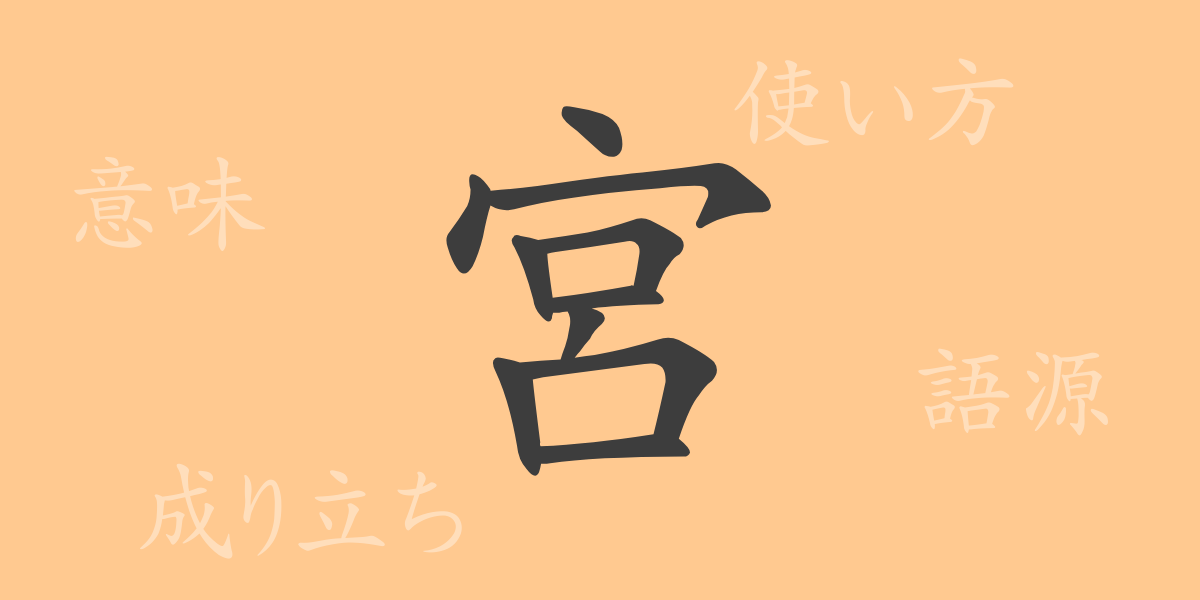The common kanji “宮(きゅう, kyū)” is deeply rooted in Japanese history and culture. This character has significant meanings, referring to sacred places since ancient times. While it is frequently seen throughout Japan, detailed knowledge about its origins, meanings, and uses might be less common. In this article, we will explore the origins, readings, stroke count, radical, and various expressions containing “宮(きゅう, kyū),” unveiling its charm.
Origin of 宮(きゅう, kyū)
The origin of the kanji “宮(きゅう, kyū)” dates back to ancient China. It was initially depicted as an ideogram representing a large building surrounded by high walls. Over time, its shape evolved into its current form. Introduced to Japan along with kanji, “宮(きゅう, kyū)” has developed uniquely in Japan, signifying esteemed places like shrines and the imperial palace.
Meanings and Uses of 宮(きゅう, kyū)
The kanji “宮(きゅう, kyū)” carries multiple meanings. Primarily, it refers to the residences of emperors or kings, sacred places, and shrines. It also has a musical connotation as “宮(きゅう, kyū).” Additionally, it appears in women’s names and place names. In usage, it can be employed with respect, as seen in expressions like “御宮(おみや, omiya).”
Readings, Stroke Count, and Radical of 宮(きゅう, kyū)
The kanji “宮(きゅう, kyū)” is noteworthy for its readings and structure.
- Readings: The on-yomi (Chinese readings) are “キュウ(きゅう, kyū)” and “グウ(ぐう, gū),” while the kun-yomi (Japanese reading) is “みや(miya).”
- Stroke count: It consists of 10 strokes.
- Radical: The radical is 宀(うかんむり, ukanmuri), meaning roof.
Idioms, Proverbs, and Expressions Using 宮(きゅう, kyū)
Many idioms, proverbs, and expressions in Japanese include “宮(きゅう, kyū).” For instance, “宮廷(きゅうてい, kyūtei)” refers to the palace of an emperor or king and its surroundings. “宮仕え(みやづかえ, miyazukae)” means serving the imperial family or nobility, and by extension, serving someone of high status. “宮中(きゅうちゅう, kyūchū)” denotes the central part of the imperial palace or the ceremonies held there. These expressions highlight the importance of “宮(きゅう, kyū)” in Japanese society and culture.
Summary of 宮(きゅう, kyū)
The kanji “宮(きゅう, kyū)” has a deep history and cultural significance, with diverse meanings and uses ranging from architecture to sacred places. In Japan, it is particularly used to refer to holy places or esteemed individuals, maintaining a close connection to the daily lives of Japanese people. Through this article, we hope you have gained a deeper understanding of the multifaceted nature and background of “宮(きゅう, kyū).” This exploration reveals the richness of the Japanese language and the meanings embedded in each kanji character.

























